The Third Man: StudioCanal Collection
Film Noir is generally considered to be an American invention and cinematic institution with numerous classics from The Maltese Falcon to Double Indemnity and Touch of Evil. Other countries made films that fit into the Noir canon such Rififi from France, Akira Kurosawa's Stray Dog and, of course, The Third Man by Carol Reed. Made in 1949 and shot on location in occupied Vienna, The Third Man follows Holly Martin, an American writer who is invited over to Vienna by his friend Harry Lime with the promise of work. Arriving at the station expecting to be greeted by Lime, there is no one to be seen, and every enquiry as to his friend's location is met with dismay because he was considered a criminal by most and he is also dead.
Although Martin has arrived in time to go to Harry Lime's funeral, he isn't quite 100% sure that his friend is dead and his enquiries into the circumstances of his death -- killed in an accident when he was hit by a truck in the street which happened to be driven by his own driver when his own doctor was walking by and two of his close friends were and proximity -- seem extremely suspicious, especially as his body was apparently carried out of the way by three men when only two can be located. Who was the third man and what was Lime really up to Vienna?
Fortunately for Martin, he is immediately taken in by a British Major who wants to know everything that Martin knows about Lime before sending him back on an aeroplane the next day. Learning that Martin is an author of pulp Western novels that are quite popular with the ordinary soldiers, the head of the local entertainment committee which specialises in propaganda and wants Martin to speak so agrees to put him up in the hotel for an extra few days. This suits Martin just fine as he really doesn't want to give a speech but will use the opportunity to properly investigate his friend's death. Killing time at a theatre, he meets a Czechoslovakian actress called Anna, who he had first seen at Lime's funeral. She doesn't believe that his death was an accident either and the two team up to try and find out the truth.
As this all takes place in Vienna immediately after the war, there is the added difficulty of the five different zones, four controlled by each of the victorious countries (Britain, the US, Russia and France) with the fifth under the supervision of a multinational force. As each country has its own set of rules, laws and behaviour they will tolerate, people naturally migrate into which section of the city they feel most comfortable. The British MP, Major Calloway, is suspicious of Anna due to her previous contact with Harry Lime and suspects her of carrying forged documentation which Harry had arranged in order to allow her to return home.
As with just about any Noir, there are myriad shady characters who would think nothing of murdering someone to protect their back and, if the secret is as big as a murder that has been covered up, they will all be extremely closed mouthed or deceptive, providing would-be investigators with no or incorrect information and even framing them for murder. Martin realises that is finding out the truth isn't going to exactly be a walk in the park especially as he doesn't know to what extent he can trust Anna and, when he begins to suspect that Harry Lime is still alive, the MPs become involved and want Martin to help them arrest his old friend.
The Third Man is generally regarded as one of, if not the best British films ever made although it was not critically acclaimed at the time and was largely ignored at the Oscars. Time has been very kind to the film and every generation that sees it recognises what a great film Carol Reed made. It helps that actors such as Orson Welles, Trevor Howard and Joseph Cotten have become more recognised as great movie stars as time goes on as, at the time Orson Welles and Joseph Cotten weren't really well-known. It's hard to point out just what makes the film so brilliant as there isn't one aspect that stands out above all the others from the inspired choice to go with zither music throughout to the stark, chiaroscuro photography and lighting with Dutch angles, labyrinthine plot with brilliant dialogue and the superb performances by the four main cast members (Cotten, Howard, Welles and Alida Valli who is just credited as 'Valli').
It really helps that it was filmed on location in a Vienna that still had yet to undergo real reconstruction following the destruction in the Second World War and the characters walk past burnt out cars, destroyed buildings and down steps that have been seriously damaged. The film is an absolute triumph of cinema and I can't really think of many British films that would have a serious claim to be better than this.
The Disc
Extra Features
The main extra feature is a commentary which is moderated by Simon Callow and features assistant director Guy Hamilton and Angela Allen who was in charge of the second unit and continuity. Although they really know their stuff and have plenty of fascinating information to impart, I was amazed at how much dead air there was, particularly as the film went on as it seemed as if Hamilton and Allen ran out of things to say and just settled down to watch the film. Even so, what they do have to say is worth listening to as it will add to your appreciation, understanding and enjoyment of the film.
There are two audio only features, both Guardian NFT interviews, the first with Joseph Cotten which lasts 47 minutes and is an absolutely wonderful listen and the second with Graeme Green apartment is only 8 minutes long and is well worth a listen nonetheless.
The half-hour The Third Man on the Radio is one of Orson Welles' projects, an episode of The Lives of Harry Lime: Ticket to Tangiers, which was written and performed by Welles and is a fascinating piece of radio that shows what a great performer Welles was, whether in front of the camera or behind a microphone.
Shadowing The Third Man is an extremely comprehensive retrospective documentary, clocking in at just under 90 minutes and covers practically every aspect of the film with contributions from
When the film was first released, the opening prologue was delivered by Carol Reed that the Americans thought that it was a bit seedy so their version was 11 minutes shorter and had the prologue read by Joseph Cotten and both are included here, with the alternate opening, read by Cotten, as the extra feature rather than the film's opening.
There are two original trailers, a stills gallery and an interview with Cornelia Mayer, a professional zither player, who also gives a performance in this five minute piece. Taking advantage of the Blu-ray format, the disc includes an interactive tour of The Third Man's Vienna which is
(These are the only extra features that are in high definition.)
Finally, the set comes with a booklet written by film historian and Alexander Korda biography Charles Drazin which is a superb read, packed full of information about Korda and the film and, like the other booklets in the StudioCanal Collection, is one that you will find yourself reading more than once.
The Picture
This is a film that has always looked good although the quality of the picture varies from source to source and from DVD to DVD, with differing contrast levels, clarity and level of detail. This is where the high definition picture comes into its own as the photography is as stark as it has ever been, which really showcases the amazing cinematography and chiaroscuro lighting. Carol Reed obviously knew exactly what he was doing with the locations and including some shots that are shot at an obscure angle to just reinforce the theme and feeling at the time makes this such a visually brilliant film.
It's all very well making a film set in post-war Vienna but quite another to film it there as the city is so prominent it is like another character and, as Reed was able to use the real wartime destruction, the location just adds to the atmosphere and sense of mystery, foreboding and suspense.
The Sound
The DTS-HD Master Audio 2.0 Mono track isn't quite as clear as I was expecting with the occasional word being a little muffled but, aside from that, it is an extremely impressive track that delivers the dialogue very well so there is no need for subtitles unless you are hard of hearing.
One of the major aspects of the film is the zither music which was originally only going to be used very sparingly with music from the London Philharmonic Orchestra comprising most of the score so was a stroke of genius to stick with YYY's zither playing throughout which, according to the commentary, was recorded at night with him watching the rushes having slept all day whilst Carol Reed was filming. It therefore doesn't sound as if it was composed, but flows naturally as if someone were playing live whilst you are watching the film.
Final Thoughts
Such a brilliant piece of cinema as The Third Man deserves a top drawer Blu-ray release and, although there is nothing fundamentally wrong with the DVDs, neither the British or American version has the picture clarity to properly captures the moody photography which adds so much to the atmosphere. It is a film that many people will recognise because of one speech that Orson Welles delivered and it is surprising how small his screen presence is, with him only appearing after over an hour had elapsed and is then on screen for perhaps half of the remaining 40 minutes. The interplay between Joseph Cotten and Alida Valli and between them and Trevor Howard is extremely believable with all three delivering superb performances.
This is a marvellous release by StudioCanal who are rapidly establishing themselves at a distributor to be reckoned with along with The Masters of Cinema Series and the Criterion Collection.
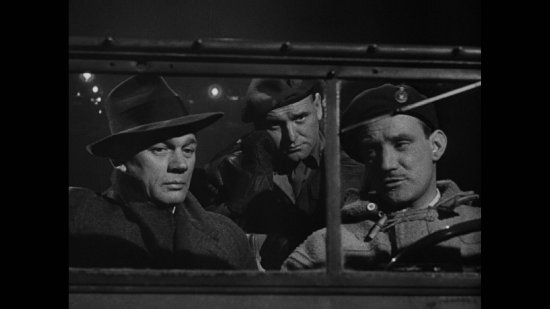
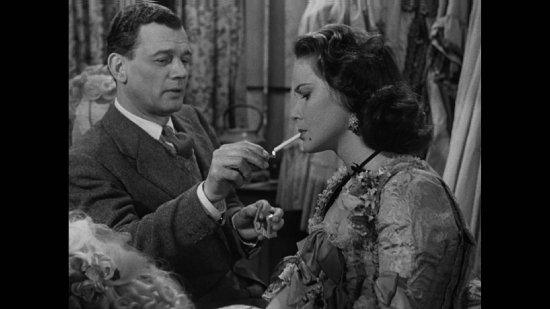
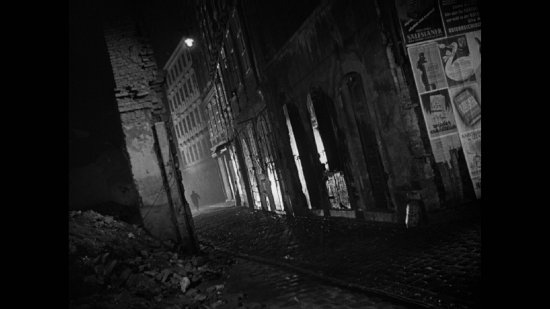
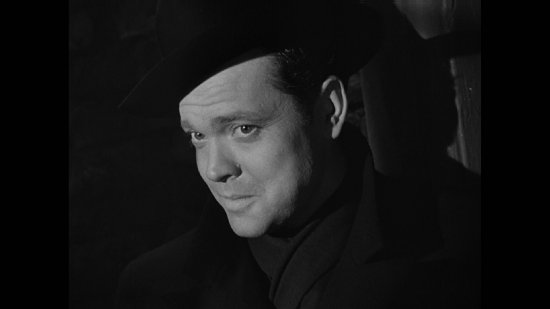
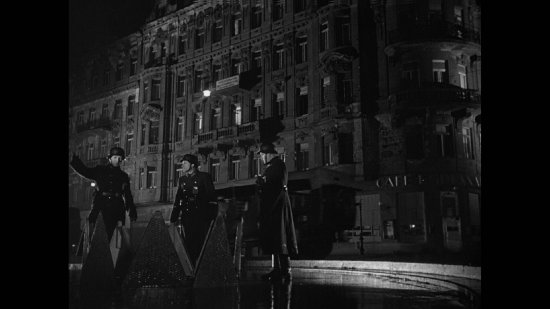
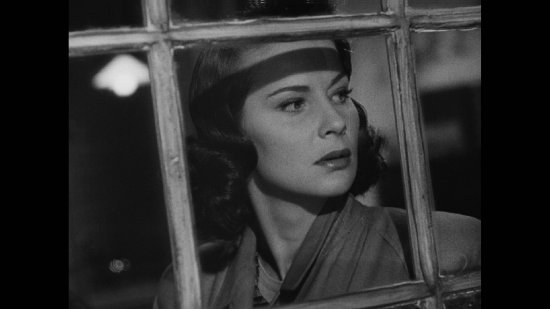
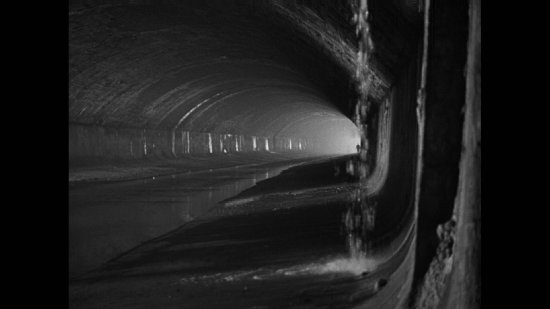
Your Opinions and Comments
Be the first to post a comment!